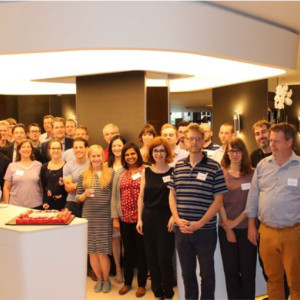 \
&
Contact us
\
&
Contact us
 \
&
Contact us
\
&
Contact us
NCP Flanders provides news updates and events event announcement on legal and financial aspects for both Horizon Europe and the Digital Europe programme. You can find the info here:
All available reference documents for Horizon Europe and Digital Europe can be found on the Funding and Tender Portal. Herewith an overview of different types of reference documents that are pivotal for applicants/beneficiaries in the programmes:
|
|
Horizon Europe |
Digital Europe |
| Model Grant Agreement |
||
|
Annotated Model Grant Agreement – user guide, explaining the grant agreement |
Find it here |
Find it here |
|
Programme Guide - details on structure, budget, political priorities, proposal preparation |
Find it here |
Not applicable |
|
Indicative Audit Programme |
Foreseen 2024 |
Not applicable |
In the Online Manual extensive details can be found regarding the application process as well as the Evaluation and Grant Signature Procedure and Grant Management.
NCP Flanders’ Infosheets offer a deep dive into specific issues and answer to frequently asked questions. It is worthwhile having a look as several of our Infosheets focus on legal and financial aspects.

Circusol is an Innovation Action project funded under a cross-cutting work programme part of Horizon 2020. Circusol aims at unleashing the full potential of circular business models, in particular Product-Service Systems, in simultaneously delivering real environmental, economic and user benefits. By that, Circusol aims to establish solar power as a spearhead sector in demonstrating a path driven by service-based businesses towards a circular economy in Europe.
A strong Flemish partnership in new Horizon 2020 project on circular economy business demonstrators, including VITO (Coordinator), IMEC, Ecopower cvba, Futech bvba, PV Cycle aisbl and Daidalos Peutz bvba.